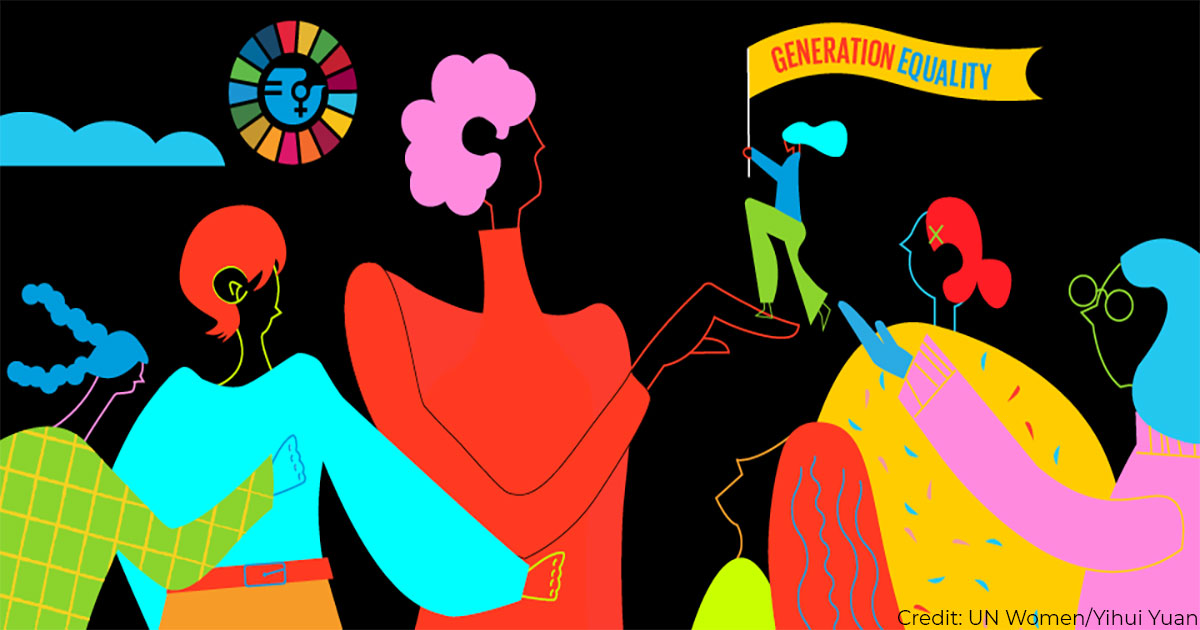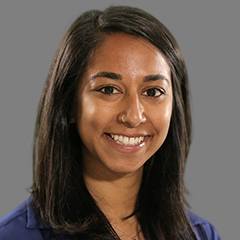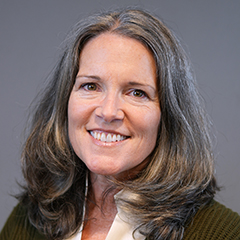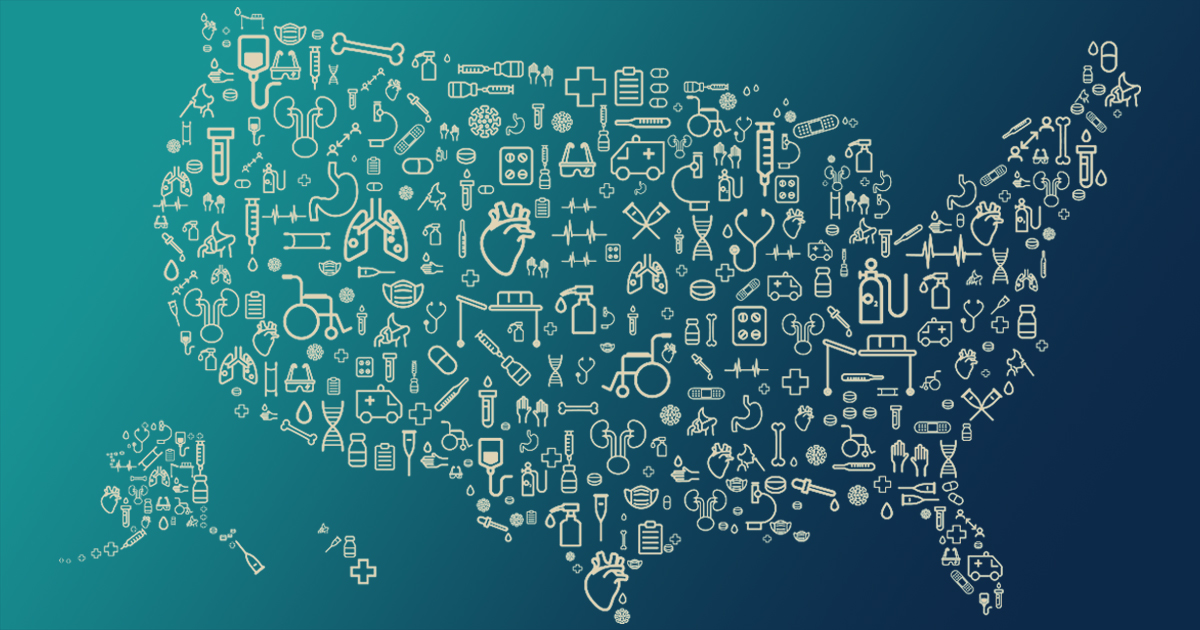Editor's note: March 8, 2021, is International Women’s Day, an annual global celebration of the social, economic, cultural, and political achievements of women. This year, it coincides with a pandemic that has imposed disproportionate hardships on women, threatening decades of progress women have made achieving leadership roles in the workplace. Yet the pandemic has also revealed the outsized roles women play in maintaining the social fabric that enables us all to remain resilient in the face of concurrent economic and public health crises.
In support of this year’s International Women’s Day theme, “Women in Leadership: Achieving an Equal Future in a COVID-19 World,” we spoke with four women at Mathematica—Candace Miller, Divya Vohra, Cindy Hu, and Sarah Hughes—leading the way to uncover timely insights and inform critical decisions about the pandemic around the globe. They share reflections on leadership, the toll that COVID-19 has taken on women, how they pivoted to help respond to the pandemic, and what the future of leadership by women looks like to them.
On the meaning of leadership
Sarah: Leadership is getting the best out of people and letting them flourish and achieve their own goals, but with an overall team objective in mind. I tend to work in a very collaborative way with my teams, and I try to create a safe space for quieter, more junior staff to put themselves forward and take on bigger roles.
Candace: Leadership requires preparation, compassion, and humor. There’s no substitute for preparation; it’s the absolute foundation. But you also have to have compassion for the people you’re serving with the work, and the people who are doing the work. Even though I’m very serious about making sure we achieve all of our work goals, I still want to laugh as much as I can throughout the day.
Cindy: Leadership means being able to make decisions, sometimes hard decisions, and then being accountable for those decisions.
Divya: I have had experiences outside of Mathematica where my qualifications have been questioned or where people ignore my ideas only to celebrate them when somebody else repeats them later. I think this is probably common to many women. I’m also aware of how good people are at overlooking the perspectives of women of color, and I try to make sure that I’m doing what I can to foster an inclusive environment.
On pivoting during the pandemic
Divya: When the pandemic hit, it felt like an opportunity to use my skills in a way that could directly help other people. That’s why those of us who work in public health go into the field. It’s also why most of us are at Mathematica. What gives me satisfaction is waking up every day and feeling like I contribute to people making decisions about how to improve public well-being. That is what feels important to me.
Cindy: I was working with Aparna Keshaviah on wastewater analysis projects, tracking community-level use of opioids. When the pandemic hit, we realized that our methods could be used to help track COVID-19, and that there was a real need for this work, given the limited testing kits available at the start of the pandemic, the testing delays, and the presence of asymptomatic cases. Wastewater testing is cost-effective, and it happens in real time—two things important for helping to track the spread of a pandemic. Now, with the vaccine rolling out and a lot of related good news, we can start to think about how we’ll use our testing abilities post-pandemic. The tools we developed during the pandemic, such as our wastewater surveillance analysis and the 19 and Me risk calculator, can translate well to assessing other health risks, such as infectious diseases or other chronic illnesses that have measurable chemical or biological markers. I believe the work is going to have a lasting effect.
Sarah: A small African nongovernmental organization that we work with offered us an opportunity to start collecting information on what was happening with COVID-19 and its impact on people’s well-being, livelihoods, economic security, and health in Africa. I immediately jumped on that. There aren’t many entities that can do that kind of multi-country study and take data collected by phone to analyze the economic impacts of both the disease prevalence and the mitigation measures.
Everything moved quickly, but we are used to that with international projects. Political environments and natural environments can change very quickly. We have to be nimble on a regular basis. So, in a way, pivoting is not different from what we do all the time in the International Division.
Candace: As the pandemic unfolded and many global development projects were put on hold, I went from evaluating investments in hydropower and utility company management in Liberia to leading contact tracing efforts domestically. It was a chance to return to my public health roots, and to use my skills to combat the pandemic.
On the toll the pandemic has taken on women
Candace: Through my contact tracing work in Washington, I’ve learned so much about the situation of women with low incomes in the U.S., particularly women on the front lines of the pandemic in the lowest paid jobs, such as Certified Nursing Assistants in nursing homes. I don't know if we fully appreciate how hard these women work. It’s a story that needs more attention, so that people understand what it means when you're not paid enough in one job and have to work three. I’ve seen situations where the lowest paid workers have to keep working because they are hungry and their families are hungry. This is while living in intergenerational households, which risks Covid-19 transmission during the pandemic. We're going to be measuring the economic and mental health toll on women for a long time. It is huge. There's lost income, there's lost wealth, and there’s also lost opportunity.
Sarah: This big burden is falling on women. The negative effects of this pandemic on career trajectories, on labor productivity, on income, and on assets for future retirement are massive. There are going to be health implications. Today we are at the tip of the iceberg. Over the next few years and the coming decades, we are going to see the implications for the poor and for the supports that we lack for parents and other caregivers.
Divya: So many, including me, have struggled with balancing child care and our personal lives with work. I’m very aware of how that burden has fallen disproportionately on women. Epidemiologists like to say that pandemics exploit weaknesses in our social fabric and take advantage of the existing holes in the way that our societies function. My experience with COVID-19 has showed me that working parents lack so much support for parenting and making sure that their families are well cared for while they’re also trying to work and earn money for their families. So many of us are at a breaking point, and the potential long-term impact for women being in the labor force, let alone leading in the workforce, is very scary.
On the future of women in leadership
Candace: There are so many more role models. The pathways are much clearer than they’ve ever been. Obviously, there will always be roadblocks, but I think that the future looks terrific for women leaders.
Sarah: I really do feel like the sky’s the limit in terms of leadership opportunities for women. I’m hopeful for gender-neutral leadership in the future, in no small part because the younger generation takes that approach for granted in such a good way.
Cindy: The pandemic is shaking up a lot of existing orders and systems and structures. During the rebuilding process, there’s going to be a great opportunity to create more equality and representation. As we reestablish the world post-pandemic, we can get started on the right foot and get on the path to a future that is different and better.
Learn more about projects Candace, Cindy, Divya, and Sarah are leading to help to address the COVID-19 pandemic:
- 19 and Me, a COVID-19 risk calculator for individuals (Cindy Hu)
- State contact tracing and case investigation (Candace Miller and Divya Vohra)
- Rapid COVID-19 testing in schools (Divya Vohra)
- COVID-19 responses and impacts: experiences from five African countries & Tips to quickly switch from face-to-face to home-based telephone interviewing (Sarah Hughes)






